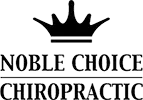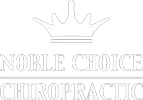Common Symptoms of TMJD
Jaw Pain
One of the most common symptoms of temporomandibular joint dysfunction is jaw pain. This is generally described as a dull ache along the jaw but can also be felt into the ear. Because the temporomandibular joint is used so frequently throughout the day with movements such as talking, chewing, and laughing, the pain is felt almost constantly. It is commonly associated with neck pain and headaches which makes the pain even more difficult to bear.
There are many causes of jaw pain but some are more common than others. For example, we often hear about jaw pain after recent dental work. This is because holding the mouth open for a prolonged period stresses the muscles of the jaw and the joint itself. Repetitive actions such as chewing gum, jaw clenching, or grinding teeth can also cause jaw pain.
Jaw Popping or Clicking
Many people complain of a popping or clicking noise in the jaw when opening or closing the mouth. In some cases, there is pain associated with this noise but more often it is just an annoying occurrence.
The pop or click noise occurs when the disc between the jaw joint is displaced too far forward instead of between the jawbones. When this happens, the jaw bone contacts the disc and creates an audible noise when the mouth moves. To fix this, the disc needs to be moved back to its correct position so the TMJ can move smoothly and properly.
Jaw Locking
A more serious symptom of temporomandibular joint dysfunction is jaw locking. This occurs when the disc is completely displaced forward. Then the mouth opens, the jaw bone isn’t able to translate completely forward, making it difficult to fully open the mouth.
Jaw locking can be very disruptive to life. Actions such as eating, talking, and laughing become difficult and frustrating to deal with. In order to address a locked jaw, the muscles need to be released. Once this happens, the jaw joint and disc are allowed to be put back in their normal position.
Jaw Clenching
Clenching of the jaw usually occurs during times of stress or anxiety. While most of us have clenched our jaw at some point in our lives, chronic clenching causes tightness and adhesions to develop in the muscles around the TMJ. Over time this becomes problematic as it can lead to other concerns like tension headaches and teeth scalloping.
If you’re clenching, even while asleep is caused by stress or anxiety it is important to incorporate stress-relieving techniques into your life. Yoga and meditation are great habits to learn, helping to decrease daily life stress.
Difficulty Chewing
It can be very frustrating to avoid certain foods because you know your jaw will hurt. Chewy foods such as steak, jerky, bread, or candy often aggravate TMJD because of a limited range of motion of the joint or disc displacement.
If chewing food is difficult for you, we must get to the cause of the problem. If the jaw is locked, then proper alignment must be restored. If the muscles are restricted, they must be released to allow for the proper range of motion of the jaw. At Noble Choice Chiropractic, we work with all kinds of TMJD problems every day.
Frequently Asked Questions About TMJD
Can chiropractic in Sun Prairie, WI help with jaw pain?
Absolutely! At Noble Choice Chiropractic, our doctors have received advanced training in the treatment of temporomandibular dysfunction. We’ve had amazing results with our TMJD patients!
Can chiropractors crack jaws?
The jaw isn’t adjusted like other joints in the body. We are able to safely stabilize the joint by using a handheld device called an Activator. This tool gently restores motion and function to the joint with no pain.
Is TMJD a medical or dental problem?
TMJD is a joint problem. The truth is, many dentists refer to us because we specialize in joint dysfunction and the jaw is no different.
Can you fix TMJD without surgery?
Yes! The vast majority of our patients with TMJD have been helped by a combination of gentle adjustments and soft tissue work. There are always extreme cases that require other interventions but most people can fix TMJD with our non-surgical care.
What happens if TMJD is left untreated?
Just like any problem left untreated, it will only get worse. It’s best to seek care with the initial onset of jaw symptoms.


